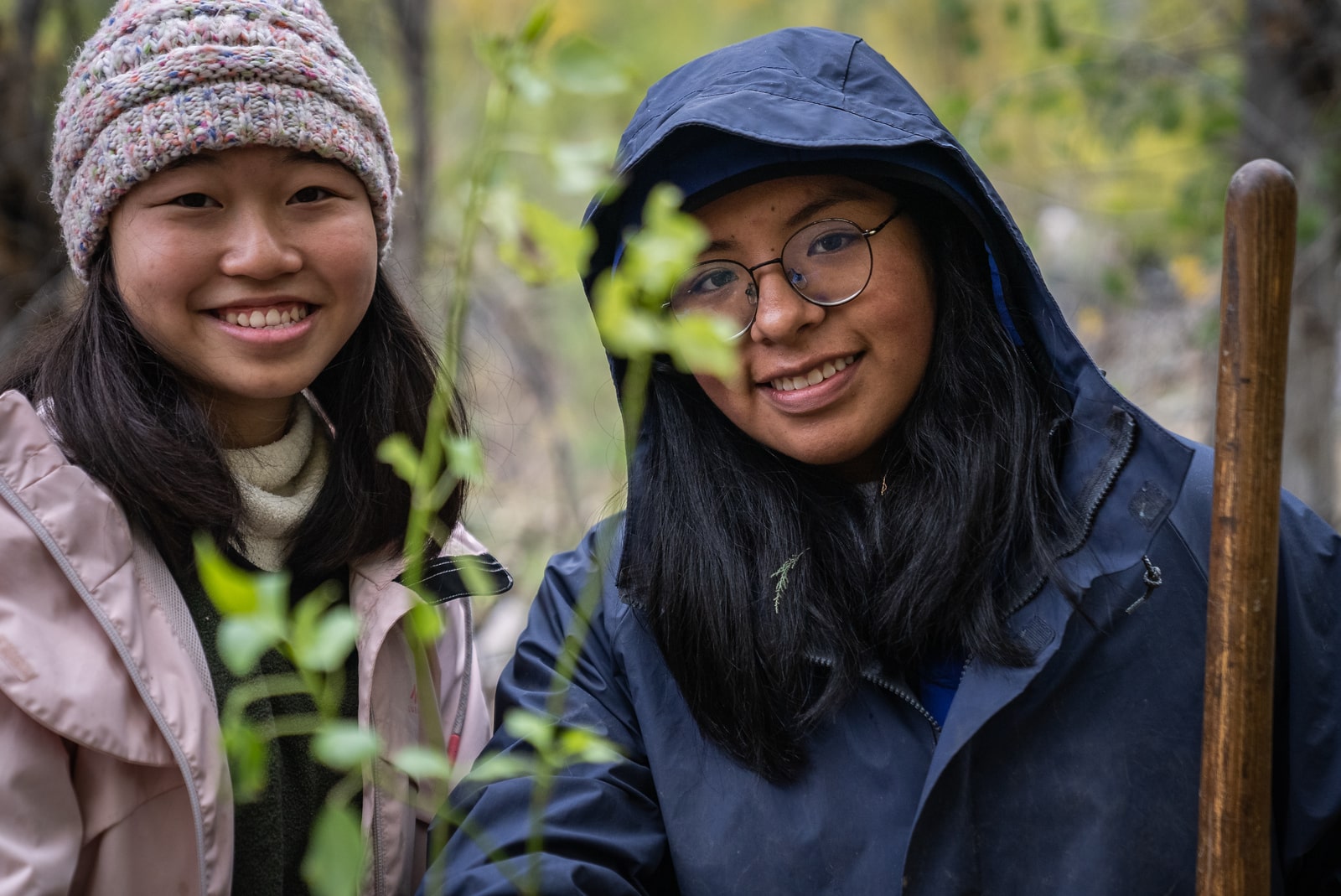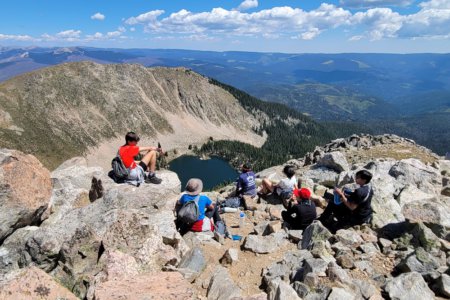An education that brings people, nations and cultures closer for peace and a sustainable future — few can claim they offer this as confidently as UWC-USA does. This two-year high school is where more than 200 students from over 90 countries live, learn and embark on adventures together.
But perhaps its most profound impact is how the school turns the years students spend here into a transformative journey that helps them become future changemakers.
Just ask Leslie Ossete. Leaving her home in Congo at the age of 15, she was nervous but excited to move to the edge of the Pecos Wilderness in New Mexico. Here, she would discover a passion for economics and go on to start her own business. “It was a bit of a shock as it was a small village in the middle of nowhere, but I soon realised that that was the intimacy of that remote place that made the link stronger with the people there,’ she says. “It just made the experience even more valuable than being in a big city.”

Leslie Ossete, past student at UWC, USA, delivering a presentation. Leslie is the co-founder and COO of Mstudio. Source: Leslie Ossete
The outdoors is a living laboratory where highly trained and enthusiastic Wilderness leaders help students like Ossete expand their skills. In this rugged and remote backcountry, the pristine beauty of the New Mexico mountains, forests, and rivers provides no shortage of inspiration. Many alumni remember their time spent there as crucial moments that shaped them to become stronger, more confident leaders and mentors.
UWC-USA offers the International Baccalaureate (IB) Diploma Programme, a rigorous pathway to higher education that’s recognised and respected worldwide. The programme pairs well with the school’s radically diverse student body of many nationalities, races, beliefs and economic backgrounds — with conformity disrupted, young minds can foster understanding, collaboration, and global citizenship.
The IBDP takes learning beyond the confines of a classroom and strategically fuses it with cultural perspectives. To complete the programme, all students must participate in Creativity, Action, and Service (CAS) — which is divided into four signature programme areas: Wilderness, Arts and Culture, Sustainability, and The Bartos Institute for the Constructive Engagement of Conflict (CEC), which stands out for its world-changing capabilities.
The school’s Constructive Engagement of Conflict programme is designed to give students the tools to work across cultures, languages, and ethnicities to build teams and partnerships desperately needed to solve the world’s most challenging problems. Activities here focus on these five areas: Beyond Borders, Multiple Identities, Climate Resilience, Restorative Justice and Democratic Engagement. Whether it’s serving meals at soup kitchens or working with the incarcerated at the local detention centre, these CEC hours enable students to build peacemaking skills, conflict resolution, goal-setting and collaboration.
“The school constantly pushes everyone beyond their comfort zone,” says Diego Angemi. He may have left the school nearly 30 years ago, but he still remembers how enlightening and empowering it was to be told by teachers and staff that his actions could make a difference. Originally from Italy, Angemi today holds a PhD in Economics and the position of Chief of Social Policy at UNICEF, working on projects that leverage technology and innovation as catalysts for inclusive growth. His role cuts across disciplines, borders and cultures — one he treads with ease thanks to his alma mater.
“You know, I saw every day as a challenge. Every day is a new experience. Every day is a learning moment,” says Angemi. “Whether it’s interacting with your roommate who comes from a completely different culture or going to class or playing basketball, or doing any sort of community service, it instils in you some sense of purpose or purpose-driven activity.”
And that includes the promotion of values that tackle the climate crisis — the defining issue of this generation. UWC-USA’s 20-acre farm provides 1,200 pounds of lettuce and produce for the Dining Hall each year. Working with staff to plant, cultivate, and harvest produce, students not only discover meaningful applications of their classroom learning in math, economics, and the sciences, but they are also challenged to think about stewardship of the earth and our natural resources. They’re stimulated to think about fresh ways to approach problems such as pest management, habitat conservation, and waste management.
“Growing food applies the concepts of biology, physics, and chemistry,” says Ben Gillock, who manages the ARC and teaches environmental systems and societies.
Other activities, clubs, and service opportunities further spur students to lead healthy lifestyles and support healthy communities. These include playing squash in the fieldhouse, mountain hiking, maintaining mountain bike trails, assisting with erosion control projects, operating the campus recycling programme, and more.
“This is the education I have been seeking my entire life,” says Class of 2019 graduate Andrea Parry. “The open-mindedness to diverse perspectives, critical thinking, and personal challenges are perhaps the key qualities underlying the mission of the UWC movement.”
Click here to find out more about how students at UWC-USA are working to become agents for change.
Follow UWC-USA on Facebook, Twitter, Instagram, LinkedIn and YouTube.











